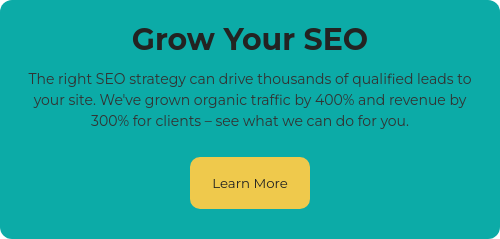Search engine optimization (SEO) is arguably the most important marketing channel with the best ROI. If you aren’t investing in SEO today, then you need to be.
What shouldn’t surprise you is that 93% of all online experiences begin with a search engine such as Google or Bing. People use search engines to help them decide on products and services, and it’s important your brand is on the first page of Google SERPs (search engine results pages). If you aren’t there, you’re virtually invisible.
Ranking in Google SERPs
So, how do you get your brand to rank in as many search results as possible? First Page Strategy enrolled in an online course, Advanced SEO: Rank in All 10 Google Search Results, that shows how to rank your business listings on all 10 of the first page Google organic search results for a specific query.
Taught by Alex Genadinik, a coach on business, entrepreneurship, and marketing, we learned in an hour’s time several ways to dominate the first page for our keywords. No tricks or malpractices – only white hat strategies to outrank the competition. Alex covers how to gauge competitors and how to leverage authoritative websites to rank in Google where your website can't. At the end of the hour, we had general methodologies for acquiring all 10 organic search results on Google.
Discounted to just $13 from a $200 original value, the ROI of this course is good. Similar content can be found elsewhere, but this course pulls many strategies together and presents it to you all in one place.
The Reality of Ranking for All 10 Organic Listings
There are a few things to keep in mind when approaching SERP domination, though.
One, it’s very difficult (perhaps even impossible) to maintain all organic listings on the first page for a given keyword. It’s not uncommon to see a brand listed a few times on the first page, but to see it across the board is a rare sight.
Two, the more competitive or broad the keyword is, the more challenging it becomes to rank for it. Going after long-tail keywords – especially if it’s based on a locale (e.g. pet supplies in philadelphia) – gives you a much better shot than hoping to dominate for something broad (like pet supplies).
Three, ranking for your brand name and seeing the entire SERP with your brand’s listings (your website, YouTube channel, Facebook page, etc.) is a much more attainable goal. We recommend starting with that as a goal, but of course optimizing for your focus keywords as well.
Priority #1: Optimize Your Website
First and foremost, your brand’s website needs to be optimized. Follow SEO principles and best practices such as building your website/navigation with SEO keywords in mind, pushing fresh content out on a regular basis, using heading tags (H1, H2, etc.) in the HTML of your website copy, and ensuring you have a landing page for your main keywords.
Leverage Other Websites to Improve Your Ranking Presence
Then leverage authoritative websites that allow your brand to do things like create an account, add a description, and link to your website. At First Page Strategy, we call this “barnacle SEO.” Much like a barnacle latches on to the bottom of a boat, you latch on to an existing website (e.g. Facebook) that has strong authority and will show your personal page in SERPs.
Below are the websites covered in the course. The instructor spends just a couple minutes on each, so here are some of the highlights and recommendations provided by First Page Strategy.
Google local 3-pack
-
Stand out on Google and get into the local 3-pack with a free Business Profile.
-
Manage how your business appears on Google Search and Maps.
-
Get reviews – the more the better.
-
Build customer trust by responding to reviews, good or bad. Businesses that respond are 1.7x more trustworthy than those who don't!
-
Update your profile with product photos, hours, menu items, and more.
YouTube
-
Create and maintain a YouTube channel.
-
Publish videos (topically relevant to your keywords) on a regular basis.
-
Use titles that are intriguing and grab the user’s attention.
-
Customize your video thumbnail images.
-
Optimize video descriptions with keywords, include as much information as possible, and don’t forget links and calls to action.
Amazon
-
These Amazon SEO practices are only applicable if you have a product to sell/list.
-
Use titles that are no more than 250 characters (or about 50 words).
-
Write a product description that incorporates keywords.
-
Use bullet points that make skimming easier for the user.
-
Include product specs.
-
Share images, photos, and videos.
-
Consider making regular content updates based on customer reviews and questions.
Yelp
-
These Yelp SEO practices are only applicable if you have a brick and mortar business.
-
Complete your Yelp profile, providing as much information as possible.
-
Create a photo gallery.
-
Get reviews – the more the better.
-
Build customer trust by responding to reviews, good or bad.
-
Choose some of the best reviews to feature on your website as testimonials, linking back to your Yelp page.
-
Create and maintain a Facebook page for your brand.
-
Optimize the about section with keywords – there are several pieces of this section like contact details, history, services, etc.
-
Publish posts (topically relevant to your keywords) on a regular basis that encourage followers to engage.
-
Share links to content that live on your website.
-
Create and maintain a Twitter profile for your brand.
-
You’re limited to a short description but try to optimize with a keyword or two while being clear about who you are.
-
Publish tweets on a regular basis that encourage followers to engage.
-
Use hashtags relevant to your keywords.
-
Share links to content that live on your website.
SlideShare
-
Create and share slides about your experiences and knowledge, which will help shape your professional identity.
-
Search Engine People recommends you “make sure the presentation you upload has a keyword-rich filename to help users find your content.”
-
Take advantage of the title tag and meta description (yes, SlideShare allows you to use these).
-
Since the text included in your slides gets turned into a transcript, use keywords in the presentation where appropriate.
Quora
-
Create a profile with your brand name, experience, a photo, and links.
-
Respond to questions about your niche, growing your authority.
-
Ask questions. Receiving answers will help you learn more about how people in your niche act, think, etc.
Publicity
-
Participate in interviews, podcasts, guest blog posts, and publications on other websites.
-
When appropriate, ask for a link pointing to your website.
Google News
-
Google News works by pulling feeds from publishers and crawling the web.
-
For the best odds of appearing in Google News, you can submit your content for inclusion two ways: One, you can sign up for the business terms and license your content to Google News through the Google News Producer tool. Two, you may also submit your website for inclusion through the Google News Publisher Center.
-
It’s no guarantee, but you don’t need to submit anything to get listed Google News. Google may find your site through normal web crawling.
Start Dominating the First Page of Google!
If you’re realizing that ranking in all 10 organic Google spots is too tall of an order for your team, hiring a new SEO agency may be the best route to take. Handing the reins to a specialized team in this rapidly evolving field will allow you to focus on your areas of expertise.
Because the tactics we’ve shared in this article can be tough to manage on your own, it’s a good idea to consult with someone who has effective inbound marketing methods. That’s First Page Strategy! Learn how we’ll help you keep up with your competition and bring new visitors to your site, all at a fraction of the cost for an in-house marketing team.






